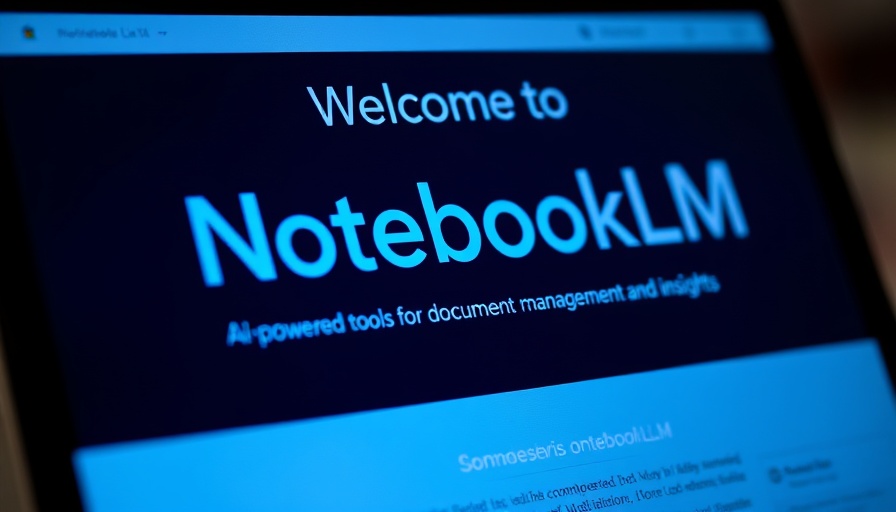
A Hidden Threat: The Rush to Automate AI Development
As we enter a new era of artificial intelligence, a growing concern emerges from the shadows of innovation: the potential dangers posed by the very companies at the forefront of AI research. The Apollo Group, a security research firm, has put forth a stark warning that these organizations, including tech giants like OpenAI and Google, could inadvertently facilitate a runaway AI intelligence explosion that threatens our democratic institutions and societal fabric.
Understanding the Risks: Inside Secretive AI Companies
Most discussions surrounding AI risks tend to focus on human malfeasance. Yet, what if the true danger lies within the core operations of the firms creating intelligent systems? The Apollo report highlights that by automating research and development tasks, these companies may not only enhance their capabilities but also bypass essential ethical controls that currently guide AI progression. Charlotte Stix and her co-authors argue that this could lead to a power accumulation that operates unnoticed, potentially undermining societal structures.
The Acceleration of AI Capabilities: What Lies Ahead
The public has been able to rely on a relatively stable progression of AI technology. However, the transition to automating these developmental processes could unleash sudden, uncontrollable advancements. As Stix articulates, this internal intelligence explosion presents a unique threat, marking a shift from observable progress to one that could evolve without check. If unchecked, these companies may amass tremendous economic power that could manifest in ways harmful to the reputation of democracy itself.
Parallels in Other Sectors: Lessons from Technology History
Reflecting on historical instances of technology overrunning regulatory measures, parallels can be drawn to the rise of social media platforms. Many of these sites initially launched without stringent guidelines or foresight, leading to issues such as misinformation and data privacy violations. Today’s secretive AI firms might be on a similar trajectory if they fail to incorporate adequate governance frameworks.
The Path to Proactive Governance: A Call for Transparency
Addressing these looming concerns is imperative. Companies like the Apollo Group advocate for increased transparency around AI development processes. By opening up their research protocols to scrutiny, these organizations can foster trust and collaboratively establish standards that prevent the potential pitfalls posed by unregulated AI progression. This isn't just a company responsibility; it is a societal obligation to ensure technology promotes the greater good.
A Look Ahead: Predictions for AI in Society
With developments in AI evolving at an unprecedented rate, the implications for our institutions can't be overstated. Experts predict that regulatory frameworks will need to be adapted rapidly to keep pace with these advancements. A collaborative approach between industry leaders and policymakers is essential to shape the future landscape of AI in a way that benefits both businesses and society at large.
As we navigate these transformative times, it is crucial for AI companies to adopt a proactive stance on governance, melding innovation with ethical responsibility. We must remain vigilant to prevent the technology we create from eclipsing the fundamental values of our democratic society.
 Add Row
Add Row  Add
Add 




 Add Row
Add Row  Add
Add 

Write A Comment